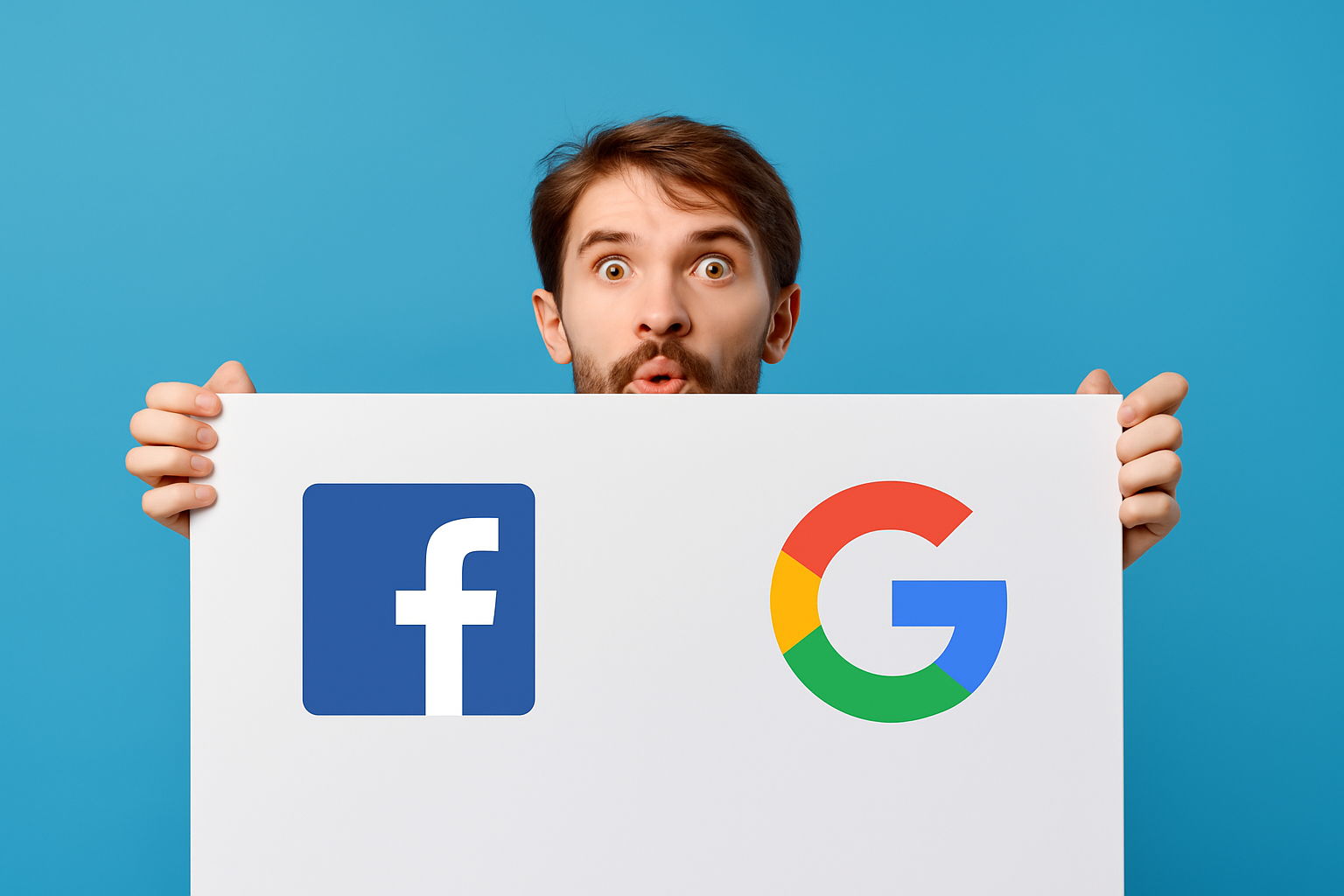In today’s competitive digital marketplace, businesses in Providence, Boston, New York City, Philadelphia, Washington D.C., Austin, and Dallas–Fort Worth face a crucial question: Should I invest in Google Ads or Facebook Ads to maximize my marketing ROI?
Both platforms offer powerful advertising solutions, each with unique strengths, targeting options, and cost structures. Understanding which platform aligns best with your business objectives, audience, and budget is essential for success.
This comprehensive guide dives deep into the differences, benefits, and use cases of Google Ads and Facebook Ads, helping business owners make an informed choice supported by data and local market insights.
Overview: What Are Google Ads and Facebook Ads?
Google Ads
Google Ads (formerly AdWords) allows you to serve text, display, video, and shopping ads across Google’s search engine results, YouTube, and millions of partner websites. It primarily targets user intent through keyword searches, offering high-intent customer reach.
Facebook Ads
Facebook Ads (including Instagram) focus on detailed audience targeting based on interests, behaviors, demographics, and location. It excels at brand awareness, engagement, and retargeting via engaging image and video ads in a social media environment.
Key Differences Between Google Ads and Facebook Ads
Feature | Google Ads | Facebook Ads |
Audience Targeting | Intent-based keywords and search queries | Interest, demographic, and behavior-based profiles |
Ad Formats | Text ads, Display, Video, Shopping | Image, Video, Carousel, Stories ads |
Best For | Capturing active searchers ready to buy | Building brand awareness and engagement |
Cost Structure | CPC and CPM depending on campaign | CPC, CPM, and optimized for conversions |
Reach | Search engine users and display network | Facebook, Instagram, Messenger, Audience Network |
Local Targeting | Geo-targeted keywords and ads | Detailed location-based demographics |
Analytics & Reporting | Google Analytics integration | Facebook Insights and Ads Manager |
When to Choose Google Ads
1. Capture High-Intent Customers
Google Ads is ideal for reaching users actively searching for products or services like yours—for example, “best web design company Boston” or “digital marketing agency Philadelphia.”
2. Drive Immediate Conversions
With intent-driven ads, businesses in competitive markets like Dallas or Washington D.C. can generate fast leads or sales.
3. Promote Products With Shopping Ads
Ecommerce businesses benefit from Google Shopping campaigns displaying products directly in search results.
4. Leverage Extensive Search Network Reach
Google Ads’ massive daily search volume ensures wide reach for well-optimized campaigns targeting your locations.
When to Choose Facebook Ads
1. Build Brand Awareness and Engagement
Social ads enhance visibility and community interaction—especially effective for lifestyle brands or events targeting Austin or New York City audiences.
2. Narrow Targeting by Interests and Behaviors
Use detailed filters to reach niche audiences unavailable through search intent, such as hobbyists or local community groups.
3. Retarget Website Visitors and Customers
Facebook’s pixel-based remarketing improves conversions by re-engaging users exploring your site from Boston or Providence.
4. Use Visually Rich Formats for Storytelling
Video and carousel ads convey brand stories more vividly, driving higher engagement on social platforms.
Cost Comparison and Budget Considerations
- Google Ads CPC can be higher due to competition, especially in lucrative markets.
- Facebook Ads typically have lower CPC but may require more volume to drive direct conversions.
- Budget allocations should depend on campaign goals, audience size, and expected ROI.
- For multi-location businesses, budgeting by region ensures tailored investment efficiency.
Combining Google Ads and Facebook Ads for Maximum Impact
Many successful businesses integrate both platforms:
- Use Google Ads for bottom-of-funnel, high-intent actions.
- Use Facebook Ads for top-of-funnel awareness and retargeting.
- Coordinate messaging and promotions across platforms for unified branding.
- Monitor combined analytics for a comprehensive view of performance across markets like Dallas, Boston, and Washington D.C.
Optimizing Campaigns for Local Markets
Tailor ads with geo-targeted keywords and creative relevant to specific locations such as:
- “Google Ads agency Boston”
- “Facebook Ad experts New York City”
- “Digital marketing Dallas TX”
- “Local retargeting Philadelphia PA”
Localized strategies increase ad relevance and conversions in targeted regions.
Measurement and Analytics for Google and Facebook Ads
- Use Google Analytics and Ads Manager for detailed dashboards.
- Track CTR, CPC, conversion rate, ROAS (Return on Ad Spend).
- Segment data by location to assess regional campaign effectiveness.
- Continuously A/B test ad copies, creatives, and audiences.
A Word From Atlas Studios
Deciding between Google Ads and Facebook Ads depends on your business goals, audience behavior, and budget. For businesses in Providence, Boston, New York City, Philadelphia, Washington D.C., Austin, and Dallas–Fort Worth, leveraging the strengths of both platforms—either separately or in tandem—maximizes marketing ROI and customer reach.
Atlas Studios provides expert PPC and social media advertising services tailored to local market nuances and business objectives. Contact us today to create high-impact, cost-effective ad campaigns that deliver measurable growth for your brand.
